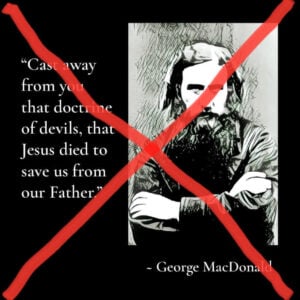THRIVING CHURCH SMALL GROUPS
There are certain biblical elements that are necessary to produce the kind of small group that is thriving and life-giving. Here are a few key sections of scripture that I believe need to be used as a blueprint when building your small group ministry.
The Early Church Model
And they continued steadfastly in the apostles’ doctrine and fellowship, in the breaking of bread, and in prayers. Then fear came upon every soul, and many wonders and signs were done through the apostles. Now all who believed were together, and had all things in common, and sold their possessions and goods, and divided them among all, as anyone had need. Acts 2:42-45
Scripture says, in the book of Acts, that 3,000 people came to Christ on the day of Pentecost when the Holy Spirit was poured out. There is a summary of this incident in Acts 2:42-45. It says, “And they continued steadfastly…” in several components:
- The apostles’ teaching
- Fellowship
- Breaking of bread
- Prayers
- Signs and wonders
- They shared all their goods with one another (There was a sense of community that was being developed).
Teaching
The apostles’ teaching is a real, key issue. The apostles had been with Jesus. They talked publicly, every day, about what Jesus said. Then they would take that into small groups and digest it. In Acts it says, “They continued steadfastly in the apostles’ teaching.” They would process together. They would ask questions such as, “What did Jesus say about that? What did He say about this issue? How can we live this out? How can we be the true people of Christ?”
Fellowship
Fellowship is the word “koinonia” in the Greek. It means to have life in common. They began to build a common faith. They were able to interact with each other, not only about their personal values and priorities, but also about where they were going and their sense of destiny and movement as a people. They had common ground that they built together. That is what fellowship is all about.
Communion
The third component was the breaking of bread. When we see that, we automatically think of a little piece of unleavened bread and a little cup of wine or grape juice. That is not quite accurate. Their love feasts were grand events. Certainly they would celebrate the Lord’s Supper as part of their love feasts, but that was only a small portion of them. I have a friend who plants small groups. He has about 4,000 relating to him. His simplest form of small group is to have a meal together and find Jesus in the meal. Although I agree with that ministry philosophy, there needs to be more structure and diversity within the focus of the group. Make sure that you are communing together around food because food unites people like nothing else can. Do this once a month or every other week. Rotate through different houses for a season. It is really fun to be creative and innovative with all of these different types of ideas.
Every small group needs time in the Word, then short teaching with led discussion. Every small group needs fellowship: sharing your hearts, needs, wants, desires, and dreams with one another. Every group should have occasional and regular gatherings to eat and enjoy life together: specifically, to break bread around the Lord’s Supper.
Prayer
Next, there should be a dynamic of prayer and vertical interaction with God. In most churches these days, we do not have much to do with prayer in the classic sense, although we pray together at some points. There are certain churches, such as the International House of Prayer, that are focused on 24/7 prayer. But for most of us, our primary prayer methodology is singing together. We have prayers that are written into choruses that we sing. And that becomes our basis of praying together. This vertical interaction with God can be through worship, song, a guitar or a keyboard played in the small group. You may not have someone in the group anointed to do that. There may not be anyone who can play an instrument. You can have somebody be a DJ. They can put together a list of three or four songs. If you listen and wait on the Lord during those songs, that can be a rich, spiritual experience. We long for the presence of God and need to touch Him on a regular basis; corporately in the big gathering, corporately in the small gathering and personally.
Signs and Wonders
In Acts 2, we see signs and wonders being done through the hands of the apostles. Make sure that you are praying for healings and miracles in your small groups. This is a great time for your people to learn how to operate in the gifts of the Holy Spirit and to be able to course correct and to be refined in the process of that learning.
Community
Another key component of small groups is community. The Scripture says that they were together. They shared meals together. They ended up connecting with each other. They experienced community. They shared their wealth with each other. They looked out for one another.
As you are modeling your small groups, make sure that you have some variety of these components happening at every meeting. And let different people take leadership in those components.
Five-Fold Wineskin
“And He Himself gave some to be apostles, some prophets, some evangelists, and some pastors and teachers, for the equipping of the saints for the work of ministry, for the edifying of the body of Christ, till we all come to the unity of the faith and of the knowledge of the Son of God, to a perfect man, to the measure of the stature of the fullness of Christ…” Eph. 4:11-13
We want a full menu of Christ in the groups, through different job descriptions, being led by different people, representing different aspects of Christ.
Apostolic: Leader
The leader will be the main person teaching, although there may be a teacher who teaches during that time. But, the small group leader is guiding, casting vision and leading the group where it needs to go. The leader is working with the development of infrastructure and overseeing the quality of the meeting.
Prophetic: Worship Worker
Have somebody who is responsible for the sense of God’s presence. We call them worship workers. They are the ones who help keep people in the presence of God.
Evangelistic: Outreach
Have an outreach worker. Have someone who keeps the group focused outward. Maybe every six weeks do a unified outreach. But, every day we should be talking to our friends about Jesus. We need someone to consult with about that. This person can share opportunities for evangelism that are available in the community.
Pastoral: Community
The pastoral person does the hosting of the group at his or her house. That is such an important role.
Teacher: Teaching
Have somebody who can bring new people up to speed. That is the person we can utilize for teaching and training.
Represent each of the five ministry gifts of Christ in your small-group structure. If you do not have all five, make sure that you have, at least, two to four good job descriptions in your group. Make sure that they are diverse enough so that different people have different points of participation. Model diversity, unity, presence and real relationships. Model a quality of meeting that is superior to anything people could get anywhere else on a mid-week night. Model a meeting that is better than a movie or a TV show that someone may be addicted to. Model a meeting that brings people into a place of fellowship that results in a high reward.
As the leader, start working within your small group to build the infrastructure. Find leaders that are committed to you. Have your leaders start locating and recruiting other people to work with concerning their personal areas of responsibility. And pretty soon you will be building a self-replicating, leadership development dynamic within your small group that is both producing great meetings and great infrastructural development. So that, ultimately, people are truly finding their destiny. They are growing up into their life purpose. You get the privilege to watch it, be there and, in a sense, be the conductor of that orchestra. When the group multiplies you will have tremendous fruit that multiplies because people are growing up in Christ and serving others according to the gifts God has given them. Raise up your church by creating small groups that foster, develop and incubate individual gifting and calling in Christ.



